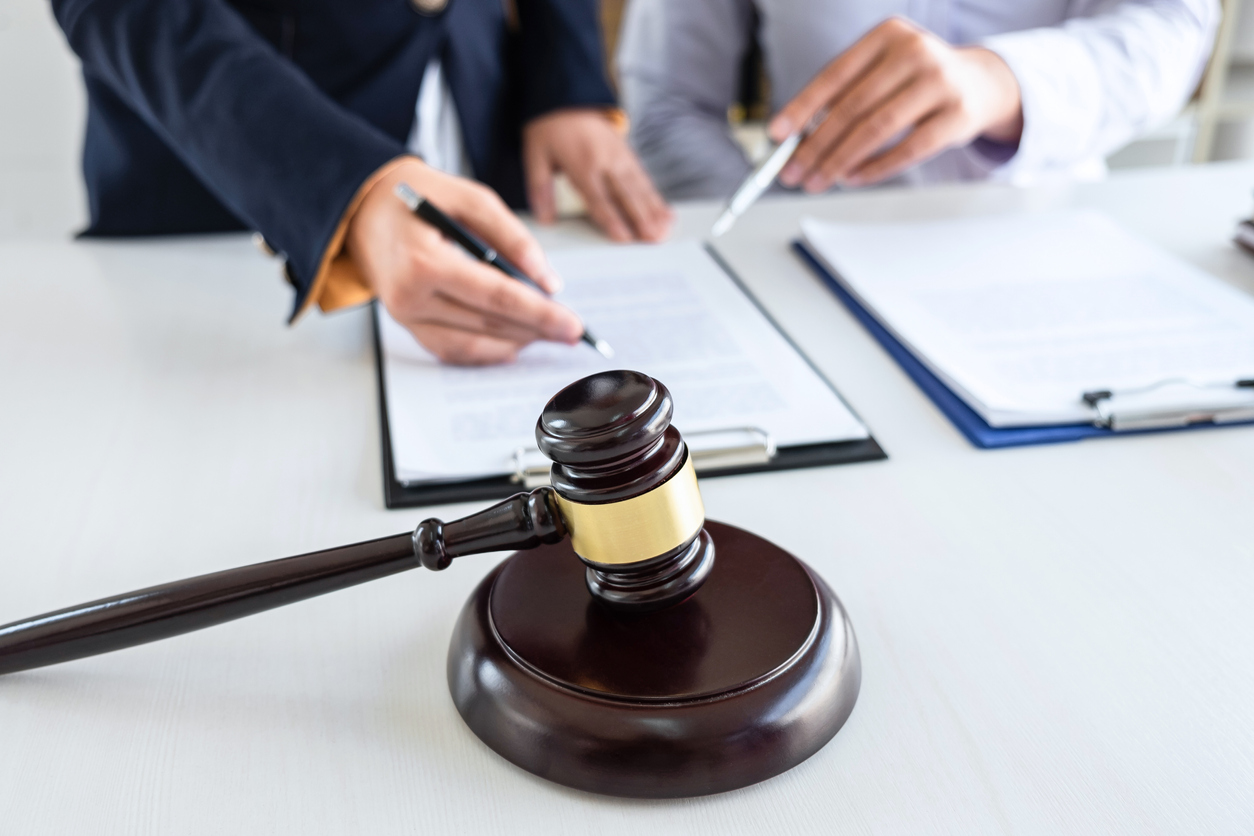August 1, 2023 | Criminal Law

The “insanity defense” may be a familiar concept due to courtroom dramas on TV or certain high-profile cases, but it’s not as simple as it looks in the media. In reality, employing the insanity defense and proving that a defendant is criminally insane can be quite intricate and challenging.
Pleading insanity is considered an affirmative defense. Unlike simply denying guilt, an affirmative defense introduces some form of justification for the behavior. The defendant isn’t denying what happened – rather, they’re explaining why it happened.
The burden of proof lies with the defendant and their criminal defense attorney to demonstrate that mental illness prevented comprehension of wrongdoing at the time of the alleged offenses.
Insanity as a Legal Concept
The legal test for insanity is grounded in the defendant’s inability to discern right from wrong or understand the nature of their actions when committing the alleged crime.
To be found legally insane during a criminal trial, a defendant must prove that they were suffering from a mental illness at the time of the crime and, as a result, were unable to appreciate the wrongfulness of their conduct.
Providing Notice for an Insanity Defense
In order to raise insanity as a defense, there are strict timelines and procedures that need to be followed. Written notice of intent to use this defense should be submitted by the defendant’s lawyer at least 90 days prior to the scheduled trial date.
From the moment that notification is received, the prosecution has 10 days to request a psychiatric evaluation be conducted.
This mental health assessment carried out will produce an important report comprising several elements:
- An account detailing the defendant’s life history;
- Information about what psychiatric or psychological exams took place during this procedure as well as medical tests, if there were any, and their outcomes;
- The evaluator’s final thoughts, conclusions, or assessments – they will share their professional opinion on whether, when the alleged crime occurred, the defendant was indeed criminally insane.
The defendant’s attorney can help gather evidence and present a compelling case.
A Difficult Path Forward
Attempting an insanity defense after being arrested is not as simple as it might appear in television dramas or movies, as noted above. Very few cases involve a claim of insanity, and of those, only a small fraction is successful.
One of the reasons for this is the difficulty involved in proving that a person meets the legal definition of insanity. This task falls upon the defense, and it requires a thorough examination and presentation of evidence, often involving expert medical witnesses and an evaluation of the defendant’s mental health history.
Additionally, society’s skepticism about the insanity defense might also be responsible for the low success rate. Jurors, just like the general public, may struggle to understand the legal meaning of insanity and may view it as a loophole for defendants to escape justice. This is far from the truth, as the insanity defense does not lead to exoneration.
Is the Insanity Defense Worth It?
While pleading insanity might seem appealing compared to a guilty verdict, Kentucky typically mandates institutionalization in a mental health facility if found not guilty by reason of insanity.
Restrictions placed upon individuals committed to mental health institutions can be severe and occasionally more intense than those found within traditional prisons. In fact, some cases result in longer periods of confinement when choosing the insanity defense compared with standard sentencing methods.
Insanity Defense vs. Incompetence To Stand Trial
Presenting an insanity defense is different from a defendant being incompetent to stand trial. While both pertain to the defendant’s mental state, the insanity defense and being deemed incompetent to stand trial play different roles in legal proceedings.
Being incompetent to stand trial means that now – not back when the crime occurred – the defendant is unable to appreciate the charges against them and is unable to meaningfully cooperate with their lawyer to mount an effective legal defense.
In such cases, the court will essentially pause the case and allow time for treatment to restore the defendant to competence.
Choosing to use the complex strategy of arguing insanity should never be made without the advice of an experienced criminal defense lawyer who can help with this process. If you need help, contact us today to schedule a free consultation.
Contact the Louisville Criminal Defense Attorneys at Suhre & Associates DUI and Criminal Defense Lawyers For Help Today
For more information, contact the criminal defense attorneys at Suhre & Associates DUI and Criminal Defense Lawyers give us a call today at (502) 371-7000 or visit us at our Louisville law office.
Suhre & Associates DUI and Criminal Defense Lawyers
214 S Clay St A
Louisville, KY 40202
(502) 371-7000
